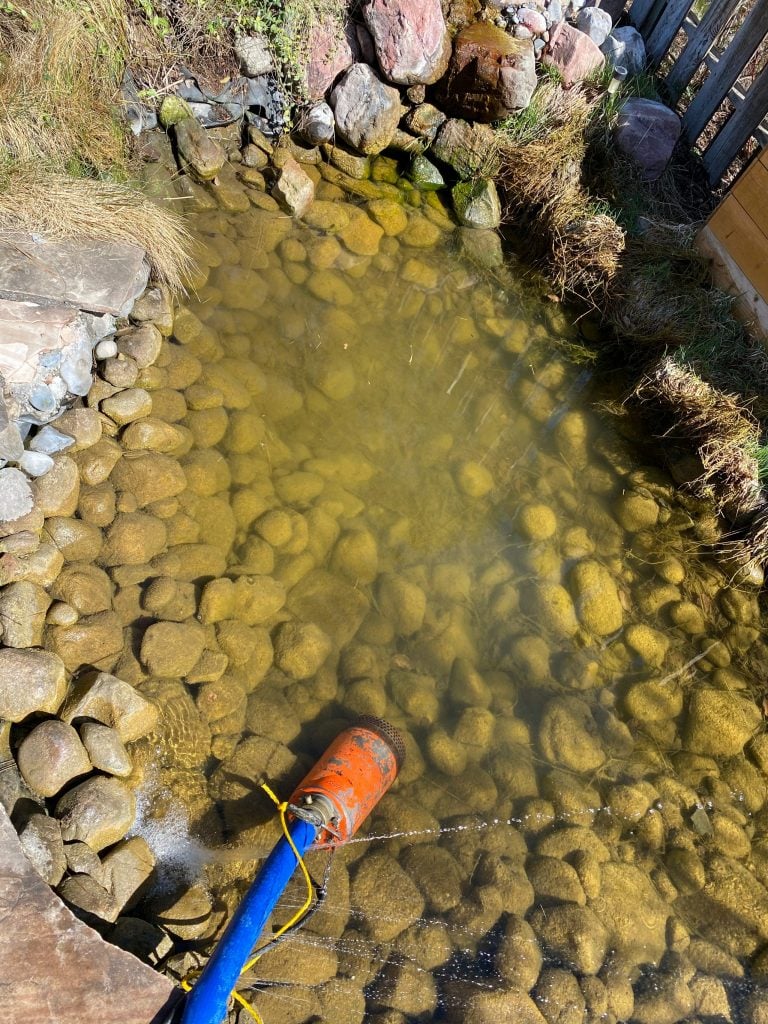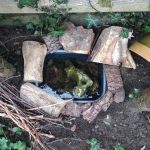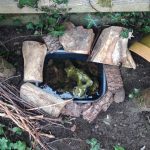Having a pond in your backyard can be a beautiful addition to your landscape. However, over time, ponds can accumulate sludge, which is a build-up of organic matter like leaves, algae, and fish waste. This sludge can make your pond look unsightly and can also harm the aquatic life in the pond. But fear not, there are natural ways to effectively get rid of pond sludge without the use of harmful chemicals. Let’s explore some eco-friendly methods to maintain a healthy and clean pond.
1. Beneficial Bacteria
One of the most effective ways to tackle pond sludge naturally is by introducing beneficial bacteria into the water. These bacteria help break down organic matter, such as leaves and fish waste, which contributes to the sludge build-up. You can find these beneficial bacteria in the form of pond treatments that are specifically designed to promote a healthy pond ecosystem.
2. Barley Straw
Barley straw is another natural solution to combat pond sludge. When barley straw decomposes in water, it releases compounds that inhibit the growth of algae, which is a common contributor to sludge formation. You can place barley straw bales or pellets in your pond to help prevent and reduce sludge accumulation.
3. Aquatic Plants
Introducing aquatic plants to your pond not only enhances its aesthetic appeal but also helps in maintaining water quality. Plants like water lilies, water hyacinth, and duckweed absorb nutrients from the water, depriving algae of the food source it needs to thrive. By reducing algae growth, aquatic plants play a crucial role in preventing pond sludge formation.

Credit: www.amazon.com
4. Aeration
Aeration is essential for maintaining a healthy pond ecosystem. By installing a fountain, waterfall, or aerator, you can increase oxygen levels in the water, which promotes the growth of beneficial bacteria that break down organic matter. Adequate aeration also helps prevent the formation of anaerobic conditions that contribute to sludge accumulation.
5. Regular Maintenance
Consistent maintenance is key to keeping pond sludge at bay. Make sure to remove any debris, such as leaves and twigs, from the surface of the water regularly. Additionally, periodically clean out your pond filter to prevent clogging and ensure optimal filtration. By staying on top of maintenance tasks, you can prevent sludge from building up in your pond.

Credit: www.erynwhalenonline.com
6. Avoid Overfeeding Fish
Overfeeding fish can lead to excess fish waste, which adds to the nutrient load in the pond and contributes to sludge formation. Be mindful of how much food you’re giving your fish and remove any uneaten food to prevent it from decomposing in the water. By feeding your fish in moderation, you can help maintain a balanced ecosystem in your pond.
7. Use a Pond Vacuum
If your pond is already suffering from a significant sludge build-up, using a pond vacuum can be an effective way to remove the sediment at the bottom of the pond. A pond vacuum works by sucking up debris and sludge, helping to restore water clarity and improve overall water quality. Just be sure to follow the manufacturer’s instructions when using a pond vacuum to avoid damaging your pond ecosystem.
8. Install a Skimmer
Installing a skimmer in your pond can help remove floating debris before it has a chance to sink to the bottom and contribute to sludge formation. A skimmer works by drawing in water from the surface, capturing leaves, insects, and other organic matter that can accumulate and decay in the pond. By incorporating a skimmer into your pond setup, you can prevent sludge from building up and maintain a cleaner pond environment.
Conclusion
Keeping your pond free of sludge is essential for the health of the aquatic life in the pond and for maintaining its aesthetic appeal. By utilizing natural methods like beneficial bacteria, barley straw, aquatic plants, aeration, and regular maintenance, you can effectively manage pond sludge without resorting to harsh chemicals. Remember to practice good pond care habits and implement these eco-friendly solutions to enjoy a clean and thriving pond for years to come.




